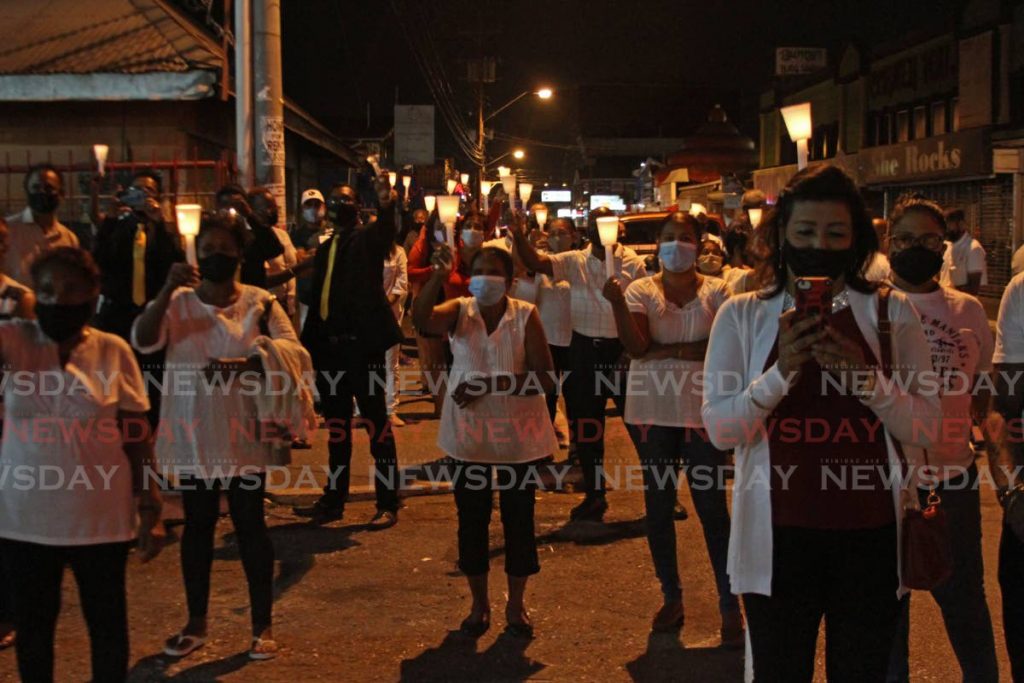Ugliness women and girls face every day

THE EDITOR: It’s February 7, one week after the search for another young woman who had gone missing and 24 hours after the country finds itself once more in trauma at the senseless and horrendous murder of Andrea Bharatt.
I am in a rural area of Trinidad. These rural areas have long established communities, newer housing developments and all manner of all the government facilities that are available – health centres, markets, religious centres, schools, etc. It’s not out in the boondocks. It’s normal life in Trinidad.
I ask to use the washroom at a secondary school (others have since it is opposite to a parking area where various groups are gathering for day outings). The security guard’s greeting to me is, “Oh, you so pretty, you so pretty.” He does not even know what I am about to ask, he is just full of himself and approaching a female in the only way he knows how to.
I stomached it and got on with what I was there for.
When I finished (all covid19 protocols observed) I spoke to another security guard inside. I told her the young man had spoken to me in an inappropriate manner. I could be his mother. She tells me he is 32. We chat about the current news and the whole underlying thought is that this is why women are so disrespected – because boys/men just do not know what is appropriate language nor intonation to speak to a girl/woman. They have grown-up speaking this way, mimicking their fathers and uncles and people around them in their communities. Never having been taught what is appropriate.
Fast-track to the end of the day and we are driving out of the area, passing through a roadside village where we admire that the children are out playing cricket in the road and the people attending a service at the church all have masks (no matter some are not wearing them properly).
The countryside in Trinidad is glorious. It is so beautiful; residents’ yards are always so well maintained and the plants and greenery abound. Then, as we are driving slowly to allow the cricket game to go on and not to disrupt too much, I start hearing “sooting,” sucking of teeth, calls of “niceness.” My stomach turns.
What happened to me happens on a daily basis to women and girls in Trinidad, and at varying degrees of ugliness.
Can we have classes in school to teach children about etiquette and acceptable behaviour? This is as important as learning maths and English. Can those children go home and take these teachings to their parents and community members? This inbred, totally unacceptable behaviour needs to change. Can it start in schools and in homes? Cottage meetings in communities to address these unacceptable issues would be far more beneficial than the meetings for political party campaigns that we appear to be good at.
Catcalling, sooting, and speaking to women as if they are objects that are different to males has to be changed. This is the beginning of the ugliness that we see daily and that can escalate to disastrous proportions where men feel they can treat women and girls anyhow they like, have power over them, and can even lead to rape and murder.
Can men and boys begin to see and greet women and girls as equal human beings?
KATHRYN LYDIA CHAN
via e-mail


Comments
"Ugliness women and girls face every day"